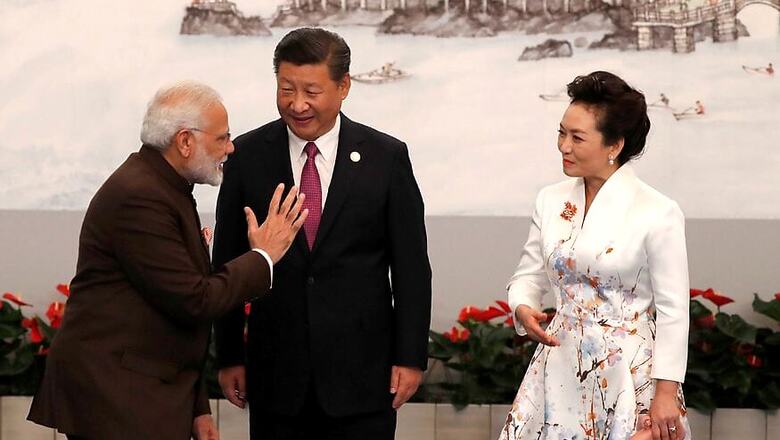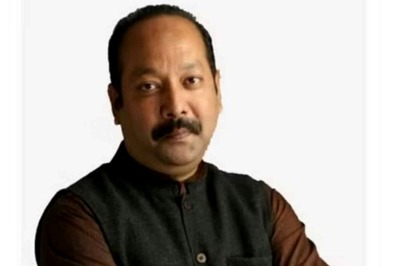
views
New Delhi: As Chinese Communist Party proposed to change the Constitution to let Xi remain in power beyond his scheduled term, experts in India say that it’s more than just scrapping of the two-year term policy for Chinese presidents and vice-presidents. They also caution New Delhi to watch out its relationship with the Asian giant.
With plenty of time on his hand following the amendment in the term policy, Xi Jinping will get an opportunity to turn his nationalistic vision for China into a reality. That may sound an alarm bell for New Delhi, which shares an ‘on-again, off-again’ relationship with Beijing.
At one time, Prime Minister Narendra Modi was seen accompanying Xi on his India visit, and then both were seen agreeing to maintain “peace and tranquillity on the border for improving bilateral ties”. However, there have been far more moments of troubles. To name a few -- the Doklam issue, China’s heightened activity in the Indian Ocean region, India’s opposition to Xi’s One Belt, One Road (OBOR) and growing closeness of Maldives and Pakistan with China, which has worried India.
By removing the phrase -- China’s president and vice president “shall serve no more than two consecutive terms” – from the Constitution, the country’s armed forces will get freer reign to project Chinese power further.
Speaking to News18, former deputy National Security Advisor Satish Chandra said that the scrapping of the two term policy has more to do with how China progresses in the future than what Xi plans to do.
“It’s a very important development but this just cements what the Asian giant will be in the future. Xi is just a persona and that can change. We need to be concerned about what China does with the scrapping of such an important term,” he said.
China, he added, is charting its own course and has always been a hegemonic party. “Power has always been concentrated in the Communist Party. Whoever remains at the top, calls the shots and certainly as Xi remains at the top, his hold will get stronger. But make no mistake, if not Xi, whoever was there would call the shots. Yes, Xi is strong but then so were his predecessors,” he said.
Echoing the same sentiments, another expert said that India needs to think about a long-term plan for engaging with China.
“It’s beyond Xi. It’s about the rising power that China is. We should be more concerned about that than anything else. The move was keeping in tandem Xi’s realisation that the next decade or so would be crucial for China and it was important for him to hold power,” said Alka Acharya, former director, Institute of Chinese Studies in JNU.
“He wants to hold power internally and externally. More than what it does to international politics and global order, we need to see it from China’s domestic perspective as well. Dissent in the Asian giant will be an issue now,” she added.
Xi is all set to enter into his second term, which until Sunday was to end in 2023. But now, Xi can hold power for as long as he wants.
The change in the Constitution is significant as the ‘two-term’ clause was brought in to ensure that unlike Mao, there was no consensus of power with one person. Significantly, Xi’s predecessors Jiang Zemin and Hu Jintao have each served two terms in office.
Besides the scrapping this clause, the CPC has also moved to imbibe the ‘Xi Thought on Socialism with Chinese Characteristics For a New Era’ into the Constitution.
According to the Xi Thought on Socialism, “Chinese people of all ethnic groups will continue to adhere to people’s democratic dictatorship and the socialist road…turn China into a great modern socialist country that is prosperous, strong, democratic, culturally advanced, harmonious and beautiful and realize national rejuvenation.” A New York Times report states that “the doctrine is a blueprint for consolidating and strengthening power at three levels: the nation, the party and Xi himself”.
In light of this, experts in the country believe that in the near future ties between India and China could see new twists and turns.



















Comments
0 comment